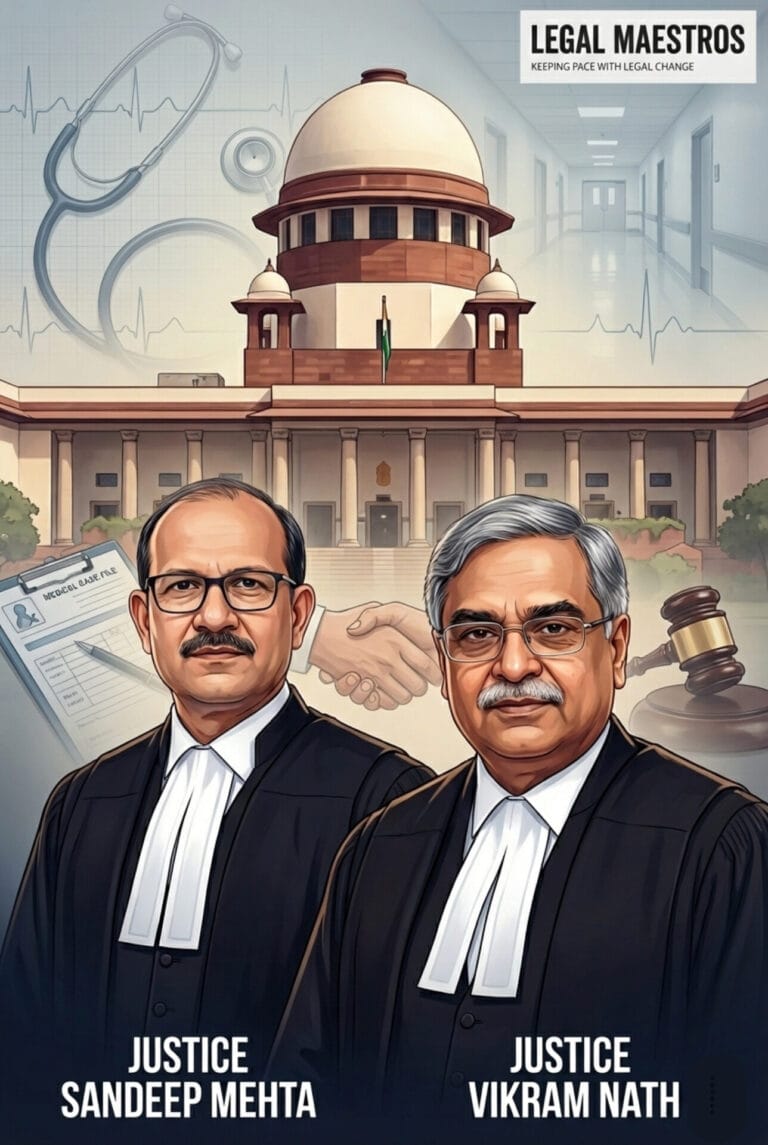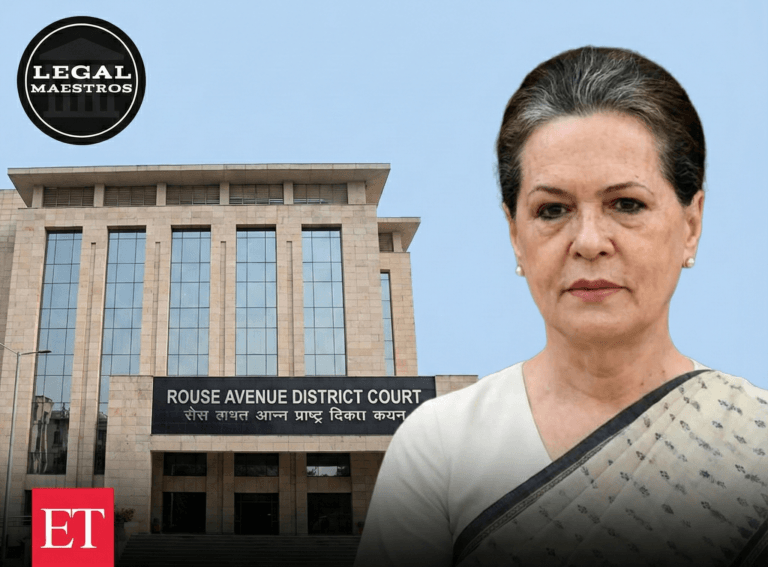
Jaykishor Chaturvedi & Ors. v. Securities and Exchange Board of India
Facts
The appellants were fined by SEBI on 28th August 2014 under the SEBI Act for the offenses. The adjudication order had set a 45 day time period for the payment of penalties levied. But the appellants took nearly nine years time and made payments after a SC order on 24th April 2023.
SEBI had brought interest on delayed payment proceedings under Section 28A of the SEBI Act repealing Section 220 of the Income Tax Act, 1961. The appellants had protested against the proposition that interest could not be charged retrospectively and even earlier, a notice of demand (under Section 156 IT Act) was required separately before interest could be claimed.
For any queries or to publish an article or post or advertisement on our platform, do call at +91 6377460764 or email us at contact@legalmaestros.com.
Arguments
Appellants contended:
- That interest could only be charged from 13 May 2022 the date of SEBI’s reminder notice.
- That Section 156 of the Income Tax Act was not incorporated into the SEBI Act, and hence no automatic liability for interest could arise.
- That the adjudication order did not mention interest explicitly, and the law requiring it was substantive in nature and should not operate retrospectively.
SEBI countered:
- That Section 28A of the SEBI Act, read with Section 220(2) of the Income Tax Act, enables automatic interest upon default.
- That the 2014 adjudication order, by providing a 45-day compliance period, itself constituted a valid and enforceable demand.
- That delay caused deprivation to public revenue and warranted compensatory interest from the date of default.
Judgment
After hearing both parties, the Court held that:
- Section 28A of the SEBI Act adopts the Income Tax Act’s provisions by reference, not incorporation. Therefore, the dynamic nature of Section 220 applies fully, including interest liability.
- No separate demand notice under Section 156 was required because the adjudication order itself served as a statutory demand when it fixed the compliance period.
- Interest liability under Section 28A is substantive but not retrospective in this case because the provision existed at the time of the adjudication.
- The 2022 SEBI notice was merely a reminder, not a fresh trigger for interest. Accepting otherwise would erode the enforcement mechanism and incentivize delay.
The Court cited Nathella Sampathu Chetty, Ujagar Prints, and Girnar Traders to distinguish between legislation by reference and incorporation. It emphasized that SEBI’s adjudication order sufficiently triggered the interest liability.
On the nature of interest, the Court reiterated the principles laid down in Bhai Jaspal Singh and Dhanalakshmy Weaving Works, affirming that interest is compensatory, not penal. It accrues automatically upon default to account for the time value of public funds.
Impact / Analysis
This judgment is a critical clarification of the SEBI Act’s enforcement provisions, especially on:
- The scope and application of Section 28A,
- The relevance of legislation by reference in securities law, and
- The distinction between interest and penalty in enforcement proceedings.
By holding that interest flows from the date of adjudication default, the Court has reinforced the principle that public funds must not be deprived of their value due to delay and that regulatory penalties cannot be undermined through procedural loopholes.
This decision will significantly streamline recovery under SEBI’s adjudicatory framework and deter delayed compliance by regulated entities. It also solidifies the position that enforcement orders with fixed timelines are self-sufficient triggers for interest liability.
Coram:
Justice B.R. Gavai
Justice Sandeep Mehta
Justice R. Subhash Reddy
References:
- Jaykishor Chaturvedi & Ors. v. Securities and Exchange Board of India, decided on 15 July 2025
- Collector of Customs v. Nathella Sampathu Chetty, AIR 1962 SC 316
- Ujagar Prints v. Union of India AIR 1989 SC 516
- Girnar Traders v. State of Maharashtra(2011) 3 SCC 1
- Dushyant Dalal v. SEBI, (2017)
- Bhai Jaspal Singh v. CCT(2011) 1 SCC 39
- Dhanalakshmy Weaving Works (2000) 245 ITR 13







